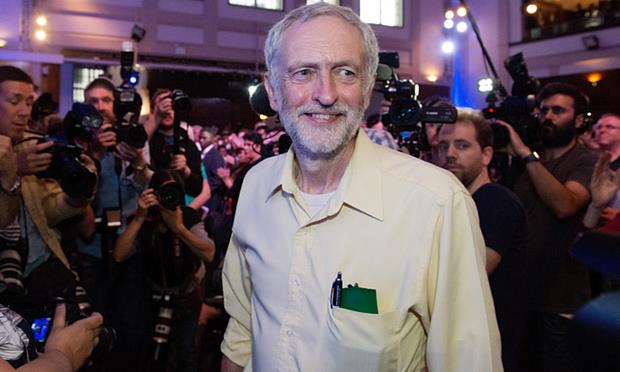Property and Punitive Taxes
08-19-2015
PropertyInvesting.net team
 Attacks Continue: The on-slaughter of Landlord’s businesses continues apace. The draconian tax changes announced in July 2015 will have a profound impact on the buy-to-let business investments.
Attacks Continue: The on-slaughter of Landlord’s businesses continues apace. The draconian tax changes announced in July 2015 will have a profound impact on the buy-to-let business investments.
1. Firstly it will render about half of investor’s portfolios uneconomic because taxes will be paid on losses – and it will be very hard to make a profit if an investor borrow money. The Chancellor seems to have mistaken a business offering services to clients with a paper investment. In doing so we predict:
2. Yields will drop dramatically – leading many buy-to-let investors to start selling up their portfolios
3. This will lead to more properties to purchase and a slight softening of the house price market, along with a severe tightening of the property rental market and rents rising very sharply.
4. The property rental crisis will worsen considerably particularly in London where there will be a giant shortage of properties to rent – one reason is because property prices are high, borrowing high, yields low and the new tax changes make buy-to-let uneconomic for new investors in London. This will be the un-intended consequence of the tax change – that in part is targeting wealthy London landlords it seems.
5. The rental market in lower priced area will not be affected so much. Hence just where rental property is required to keep business and the public sector ticking over, it will be hit badly and very few new rental properties will be available.
6. This will be worsened by the very high population growth in SE England, along with inward migration and new migrants having large families. Rents will become prohibitively expensive for public sector workers and low paid private sector employees. This will make running businesses in SE England more challenging – attracting the right talent.
Paying Tax On A Loss: We have never heard of paying a tax on a loss before anywhere in the world – this must be an all-time first. If you have no borrowing, there will be little impact, but most buy-t o-let investors have borrowing of at least 60% - upwards to 90% or even 100% of the property value in prices have dropped. It makes no economic or business sense – unless you are intent on destroying a business that is – which the Tories seem to be proposing.
o-let investors have borrowing of at least 60% - upwards to 90% or even 100% of the property value in prices have dropped. It makes no economic or business sense – unless you are intent on destroying a business that is – which the Tories seem to be proposing.
Unsustainable: If interest rates rise sharply, then many buy-to-let businesses will go bankrupt since they will not be able to pass on their losses to the tenants. Any buy-to-let landlord going under will also see tenants on the streets in droves – adding to the housing crisis.
Banks Not Helping: It now looks like the banks will tighten up lending criteria for buy-to-let landlords – this might be partly to do with the higher taxation since banks will now see buy-to-let as a riskier business (or investment as the government call it). This will further reduce rental supply and lead to higher rents in the next few years of course.
Interest Rates and Inflation
The slightly more positive news – if there is any - is that the Tories are trying to do something about the massive public sector deficit and trade deficit. It does not directly impact investors returns though. The implementation of spending cuts over the last five years have been very w ell received by the financial markets after the crisis caused by Labour’s overspending up to 2010. The Tories always said it would take 10 years to repair the damage and we are now over half way through the process. Because of the right economic spending trend, Sterling has gained against most other currencies – particularly since Euroland was forced to start printing money again. This has had the desired effect of keeping inflation low. Furthermore the crash in oil prices has also kept inflation at near zero and despite 3.2% wage inflation, this has allowed the Bank of England to keep interest rates at record low levels of 0.5%. It’s worth pointing out this very low borrowing costs would be impossible with a Labour government since Sterling would decline, inflation would rise and interest rates would have to rise with it – also to help support the currency value. What we are seeing is a well managed UK economy which is re-balancing from public to private sector – leading to low interest rates and strong economic growth – with record employment levels and stable unemployment levels.
ell received by the financial markets after the crisis caused by Labour’s overspending up to 2010. The Tories always said it would take 10 years to repair the damage and we are now over half way through the process. Because of the right economic spending trend, Sterling has gained against most other currencies – particularly since Euroland was forced to start printing money again. This has had the desired effect of keeping inflation low. Furthermore the crash in oil prices has also kept inflation at near zero and despite 3.2% wage inflation, this has allowed the Bank of England to keep interest rates at record low levels of 0.5%. It’s worth pointing out this very low borrowing costs would be impossible with a Labour government since Sterling would decline, inflation would rise and interest rates would have to rise with it – also to help support the currency value. What we are seeing is a well managed UK economy which is re-balancing from public to private sector – leading to low interest rates and strong economic growth – with record employment levels and stable unemployment levels.
House Prices To rise Sharply September Onwards: This is of course perfect conditions for further house price growth. It’s no surprize. It’s also worth pointing out remarkably that the UK has the most right wing government in Europe and hence most likely to keep the finances in order and not be spend-thrift. The financial markets know this and price this into the value of Sterling – hence keeping down inflation, interest rates, borrowing costs and boosting Sterling values for Sterling investors – ref London property. This boosts London’s standing as a safe haven for super-rich global investors. The currency risk is much reduced. Sterling has strengthened recently against most currencies except the dollar – and when you compare it with the Russian Rouble that has declines 70% in value and Brazilian currency that has dropped 50% against the dollar/Sterling, you can understand why the super-rich want to park their money in prime London property despite higher stamp duty. The softening of house price increases mid-year will be temporary – this normally happens when people focus on their family holidays. When everyone gets back on September, with the Christmas bonus season just around the corner and renewed confidence in the UK economy with subdued inflation – we expect house prices to take off again in the period Sept 2015 to March 2016. The August annual inflation of 0.1% hardly justifies raising interest rates, so the period of low cost borrowing will continue for at least another 6 months as oil prices stay very low at $47/bbl.
Labour Leadership Election: The Tory’s main opposition Labour have frankly gone into meltdown – the Labour leadership contest has been very divisive – but this is probably just the beginning. If Jeremy Corbyn gets to be the leader, which is about 70% likely, this will start the massive shift to the left and make  Labour unelectable. They will become a fringe protest movement – aligned towards Karl Marx’s communist philosophies. The will be anti-nuclear, anti-Trident, anti-business, pro-union, pro-strike, pro-spending. It could ultimately lead to the destruction of the Labour party – a split into two. If this happened, then Labour would win almost no seats. For centre-left Labour supporters – it must be the most depressing period in the last 50 years or more. Rather then come back to the centre (move right) which was certainly required after Ed Miliband’s humiliating defeat, the party seems to have lurched very far to the left and even fewer people would trust the Labour party with the economy – which was the key reason why Labour did not get enough votes in May 2015. For property investors – you can look forward to the next decade under Tory rule. We just hope they start treating buy-to-let investors with some credence since the punitive tax measures recently announced have made the property investment community bitter and it will ultimately end up driving rents higher and reducing the overall supply of rental properties and investment opportunities – we are starting to see the start of this with rent rises in the last 1-2 months as shortages develop – the UK government creaming tax even when a buy-to-let business owner is making a loss, then taking a gigantic 28% capital gains tax on top – before taking another slide of inheritance tax at the end. Its little wonder buy-to-let investors will be leaving the business in the next few years. It’s a punitively high tax business – especially when you consider council tax, stamp duty, VAT, license fees and other taxes thrust upon unsuspecting Landlords. It has to be just about the highest tax business in the country now – apart from petrol.
Labour unelectable. They will become a fringe protest movement – aligned towards Karl Marx’s communist philosophies. The will be anti-nuclear, anti-Trident, anti-business, pro-union, pro-strike, pro-spending. It could ultimately lead to the destruction of the Labour party – a split into two. If this happened, then Labour would win almost no seats. For centre-left Labour supporters – it must be the most depressing period in the last 50 years or more. Rather then come back to the centre (move right) which was certainly required after Ed Miliband’s humiliating defeat, the party seems to have lurched very far to the left and even fewer people would trust the Labour party with the economy – which was the key reason why Labour did not get enough votes in May 2015. For property investors – you can look forward to the next decade under Tory rule. We just hope they start treating buy-to-let investors with some credence since the punitive tax measures recently announced have made the property investment community bitter and it will ultimately end up driving rents higher and reducing the overall supply of rental properties and investment opportunities – we are starting to see the start of this with rent rises in the last 1-2 months as shortages develop – the UK government creaming tax even when a buy-to-let business owner is making a loss, then taking a gigantic 28% capital gains tax on top – before taking another slide of inheritance tax at the end. Its little wonder buy-to-let investors will be leaving the business in the next few years. It’s a punitively high tax business – especially when you consider council tax, stamp duty, VAT, license fees and other taxes thrust upon unsuspecting Landlords. It has to be just about the highest tax business in the country now – apart from petrol.
Tax Changes Drive The Wrong Behaviours
Because of the massive assault on the buy-to-let rental sector, and also prime real estate through higher stamp duty on properties >£500,000 value, we think this will drive property business investors to do the following:
· Make short term profits out of buying, renovating then selling  property for those using bank loans to finance (rather than renting them out)
property for those using bank loans to finance (rather than renting them out)
· Investing in their own homes – where no capital gains tax is payable – particularly if the value is less than say £1 mln (extensions, loft conversions, partitioning into flats)
· There will be fewer long term landlords willing to pay tax on losses – hence many buy-to-let investors may sell up and move on – reducing the rental supply and driving up rents and increasing the shortage of rental properties
· Property investors may also choose to buy small pockets of land, build homes-flats, then sell them immediately (but not let them out)
Don’t Hang Around Paying Tax On Losses: No-one can afford to stick around making big losses for years – whilst paying tax on these losses to the government. It’s economic suicide. So expect a rental market crisis by 2017 as these tax measures start to kick in and buy-to-let investment dries up. With the massive inward migration of people plus booming indigenous population in southern and eastern England – it’s a recipe for a rental market crisis – particularly as the government is not building any rental properties and housing associations are selling their properties. It could all be part of a masterplan by the Tories to drive down the amount of renters in large part because these people are more likely to vote Labour. However, we cant see how it will add many new properties to the overall market – its likely to do the opposite since buy-to-let investors often buy new builds – and if they don’t buy these, they will not get built.

